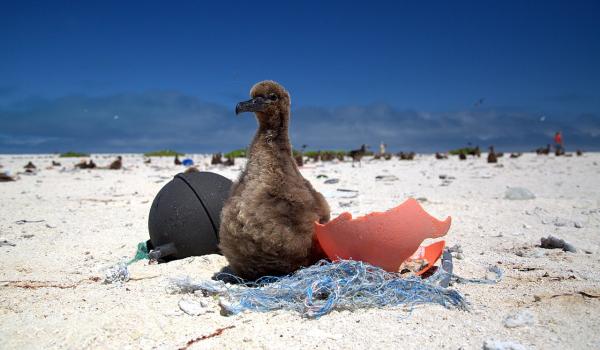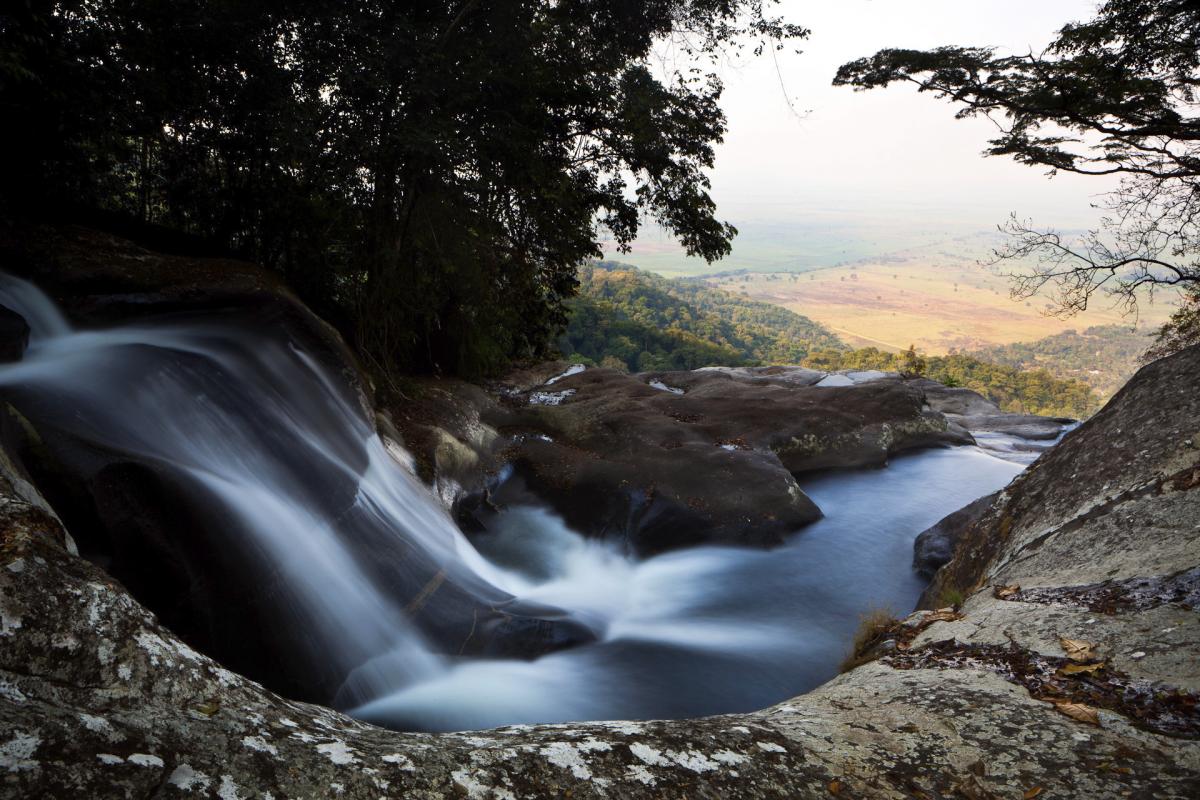12 right answers to inclusive green growth
We asked a dozen people to talk about inclusive green growth in Mozambique and Tanzania. Each had a slightly different take on the definition, but they all acknowledged that it is a landscape-wide process towards environmentally and socially sound development involving everyone from family farmers to CEOs, and from land managers to politicians.

Photo: IUCN / Corbett Nash
Five years into an ambitious programme exploring how to grow sustainable development practices in three distinct sections of growth corridors in Mozambique and Tanzania, we are beginning to see the pieces of the inclusive green growth puzzle come together. From big hydro-electric, cotton and sugar companies to tiny village tree nurseries, nascent baobob collectives and community agriculture demonstration plots, the SUSTAIN programme is learning to promote responsible development, connectivity and sustainable growth – leading to the broadly-defined and universally-sought concept of inclusive green growth.
Four leaders share their takes on inclusive green growth and the SUSTAIN programme.
Building two-way trust is good business
The Kilombero Sugar Company (part of Illovo Sugar Africa) in Tanzania is a large sugar producer that sources 40% of its raw material from individual farmers (8,000 strong) and is fundamentally interested in the long-term viability of these farms. A company representative, Jobra Derick Mwemezi Zahoro, who has embraced the inclusive green growth concept in the SUSTAIN project says that, “the SUSTAIN initiative of climate smart agriculture is giving us the confidence that our business is here to live, because if the environment is well-managed and well-protected, then 20 to 30 years to come, this business will keep on running.”
Jobra points out that building trust is the key. They work with their farmers to practice water-smart agriculture and encourage the use of the best farming methods and the strongest seed thereby reducing the need for pesticides, and supporting biodiversity by increasing yields on cultivated land (as opposed to opening up new areas). He has noticed that SUSTAIN engagement is special because it nurtures systems of trust through building mutual understanding of the needs of both the farmers and the company.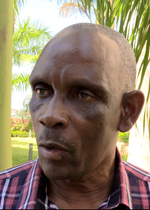 Photo: IUCN / Corbett Nash
Photo: IUCN / Corbett Nash
Loss of trust is always coming with misunderstandings,” says Jobra. “SUSTAIN’s role of understanding what is happening on the miller’s side and what’s happening on the grower’s side… They’ve played a big role of advocacy to balance and educate, or equip the farmers with the information to understand the business. And on our [the company] side, we feel like we win the [confidence needed] to operate in the community because we build their trust in the relationship."
Support from the top is key to green growth
As the Executive Director of a policy advocacy forum in Tanzania called the CEO Roundtable, representing 150 CEOs in Tanzania’s financial, industry, trade, services and tourism sectors, Santina Benson understands the power for positive change inherent to business. She recognises, “the impact that those CEOs can have, and the decisions that they make on natural resources is quite significant. As an example, if the financial sector were to adopt sustainable finance principals, which is something we’re working towards, that would mean climate-smart agriculture as well. It would mean they have embedded, in their way of lending practices, how people farm. And that can have a very positive impact on biodiversity conservation.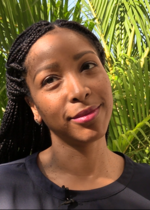 Photo: IUCN / Corbett Nash
Photo: IUCN / Corbett Nash
Santina acknowledges that the term inclusive green growth may not necessarily resonate with businesses, but she’s helping them understand that everyone has something to contribute and everyone has a role to play in the long-term sustainability of our natural resources. From a business perspective that means different things in different sectors – it’s just a matter of encouraging businesses through finding the right incentives for them to participate.
Investing inclusively and responsibly is a political priority
Juliano Picardo, member of the Mozambique Parliament from Tete Provence, is first and foremost interested in the welfare of his electorate. He is proud of his province, the people and the willingness of businesses to develop, but he has seen unsustainable and sometimes unhealthy development, some of which disturbs him deeply.
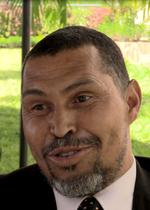 Photo: IUCN / Corbett Nash
Photo: IUCN / Corbett Nash
When you talk about Mozambique, you are talking about 80% of the people living on the edge of poverty. Sustainability is a big challenge, but in my experience in Parliament the challenge is how to get involved in big projects like mines. Tete is a very rich province. We have coal mines. [But] we have pollution every single day, and people come from outside to work because we don’t have qualified people to work in the mines. The [local] people are going to say the project is not for us, it’s for other people. What kind of investment is that?
People ask me, Mr. MP what’s going on with our village? Our environment is becoming polluted. Before the mines were underground, but now they are open. That is new for us. Nothing is more important than the health of our communities. We need to think about how to [develop sustainably]."
Juliano knows that planning around development needs to change, saying “now is the time to stop, to sit with investors and experts to come up with good solutions. We aren’t saying that we shouldn’t continue taking resources from the ground, we need that but in a better way – to not sacrifice our future generations. We need investors to think about us as well, not just profit. Initiatives like SUSTAIN are welcome because they are trying to push investors to think about social responsibility.”
Working together in new ways
Park Manager Luis Dos Santos Namanha from Magoe National Park listed the ways in which he’s seen livelihoods improvement with the communities in and around his park since they embraced the SUSTAIN programme and inclusive green growth, including: reduced burning and bush fires, new efficient technics for farming, better livestock and sustainable fishing practices, and improved access to markets. He says this leads “to both more sustainable production, food security and less impact on the park.”
Luis builds on the notion of an improving and mutually beneficial relationship between the park and surrounding communities by pointing to an existing policy that, “according to the law, 20% of tourism development in the park will go back to the local people. So there is double impact in terms of benefits – through what they get from conservation and the SUSTAIN project. It’s a win win.”
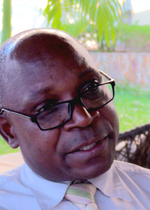 Photo: IUCN / Corbett Nash
Photo: IUCN / Corbett Nash
But Luis claims that perhaps the most important contribution that SUSTAIN has ushered in is actually a new philosophy. “SUSTAIN came in and is teaching government institutions to communicate and work together. The government created the national park but they made no ways for the government to communicate [internally or externally] with partners, but the SUSTAIN project facilitates the linkages.”
Who needs a definition?
Developing inclusive and sustainable systems across large areas is a daunting task that can truly only work if everyone involved is committed to working together. And in truth, a precise and binding definition of inclusive green growth may not actually be in everyone’s best interest because it manifests in so many different ways. The important point to hold on to is the concept of a better, greener, more prosperous and inclusive future. With this as a shared goal, there are no wrong answers.
Blog by Cory Nash, IUCN Global Forest and Climate Change Programme.

